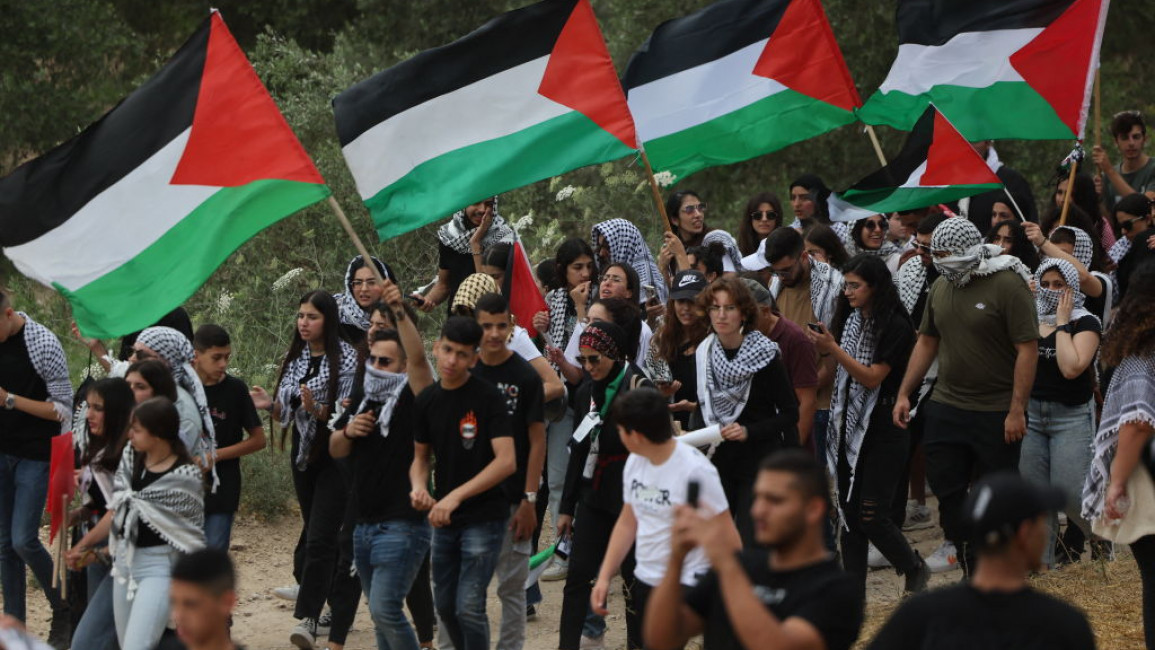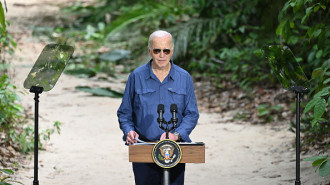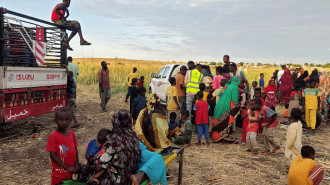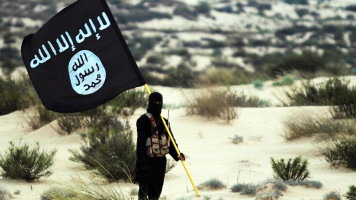As Israel celebrates 'independence', Palestinians start to mark 76th anniversary of 1948 Nakba
Thousands of Palestinian citizens of Israel participated in a symbolic march of return to Hawsha and Al-Kassasir, ethnically cleansed villages near Shefa-Amr (Shfar'am) in the Palestinian territory of 1948 (Israel proper today) raising slogans like "Their Independence Day is Our Catastrophe Day" and "No Backtracking on the Right of Return," and "Stop the Assault on Gaza" on the 76th anniversary of the Nakba corresponding to Israel's Independence Day. Palestinians mark the Nakba on 15 May, the day after Israel celebrates its 'creation'.
Carrying Palestinian flags and banners bearing the names of their lost villages, demonstrators chanted slogans demanding "No Negotiation, No Return" and "End the Assault on Gaza." Organized for the 27th consecutive year by the Association for the Defence of the Rights of Displaced Persons within the 1948 territories, in collaboration with the High Follow-up Committee, the march aimed to emphasize the ongoing struggle for the Palestinian right of return.
Musa Saghir, a member of the Association and a displaced person from Hawsha, reflected on the history: "Hawsha and Al-Kassasir fell on April 15, 1948. Hawsha had a population of 440, and Al-Kassasir had 200 residents. The people of Hawsha were originally Algerians who arrived in 1886 during the Ottoman period."
"We have two messages: first, our commitment to staying here and our unwavering belief in the right of return, no matter how long it takes. And second, a call to halt the brutal war on Gaza," Saghir emphasized.
Participant Walid Hamas underscored the enduring significance of the Nakba, stating, "This march is a clear statement that the Nakba continues to this day... We will neither forget nor forgive."
Political activist Qadri Abu Awad said "Their [Israel's] Independence Day is our Nakba (Catastrophe) Day but the Palestinian issue has regained prominence through the crisis in Gaza... We are reasserting the Palestinian cause once more."
Sami Abu Shahada, head of the National Democratic Gathering Party (Tajammu), affirmed the march's annual importance: "The March of Return to Hawsha and Al-Kassasir near Shefa-Amr is an annual affirmation of our commitment to the right of return and our hope for the restoration of our villages and cities. This year, with the ongoing war on Gaza, Gaza takes center stage in all commemorations of the Nakba, both within and beyond Palestine. This sentiment is echoed in the chants of thousands of young people showing support for Gaza."
#صور من الفعاليات التي انطلقت بقريتي الهوشة والكساسير خلال مسيرة العودة. pic.twitter.com/75bx9AMQeT
— الجرمق الإخباري (@aljarmaqnet) May 14, 2024
The Nakba, or catastrophe, signifies the forced displacement and ethnic cleansing of thousands of Palestinians from their towns and villages, to make way for the creation of Israel in 1948.
Over 750,000 Palestinians were victims of ethnic cleansing, mass dispossession, killings and forced displacement carried out by Israeli Zionist paramilitaries and the army.
The traumatic events act as a foundational symbol of Palestinian national identity and are marked annually on May 15 within by Palestinians in the occupied territories, those living within the 1948 borders, and those within the diaspora.
Since 7 October, the Israeli army has relentlessly bombed and shelled the Gaza Strip, resulting in the killing of at least 34,904 Palestinians, mostly women and children.







 Follow the Middle East's top stories in English at The New Arab on Google News
Follow the Middle East's top stories in English at The New Arab on Google News


